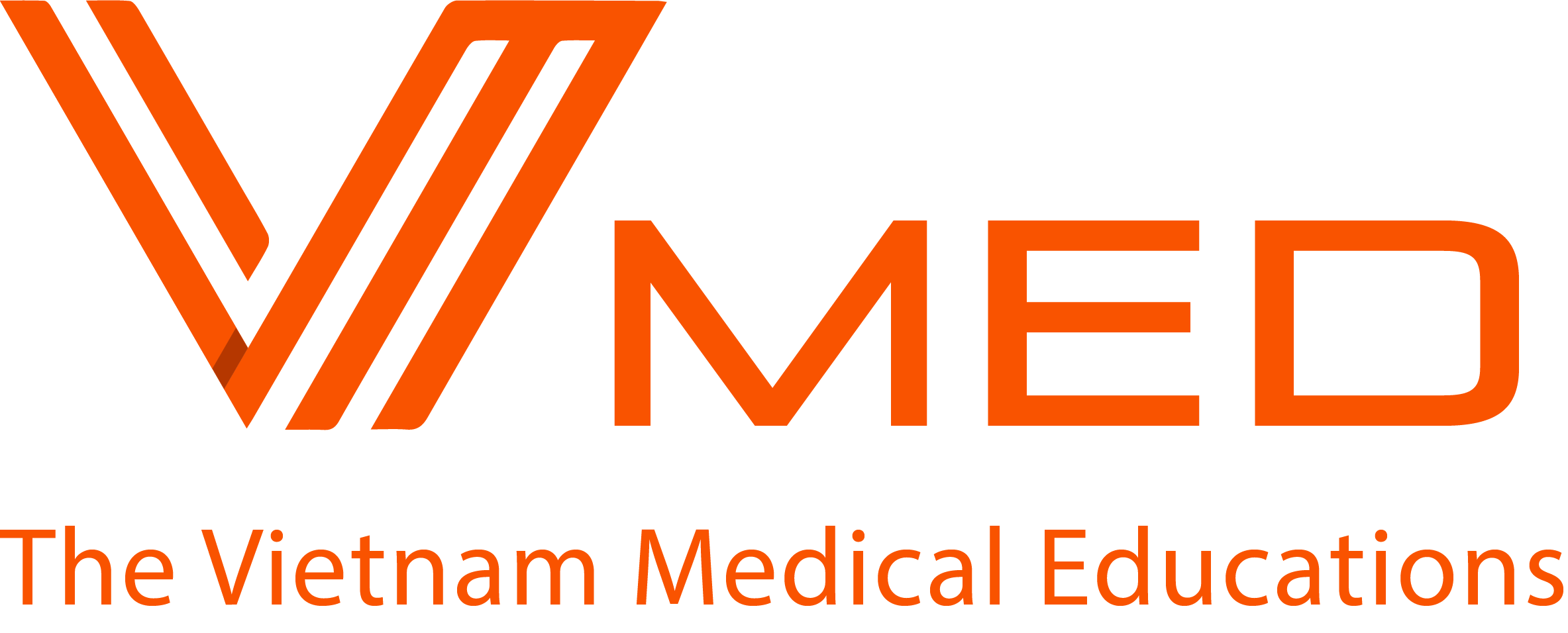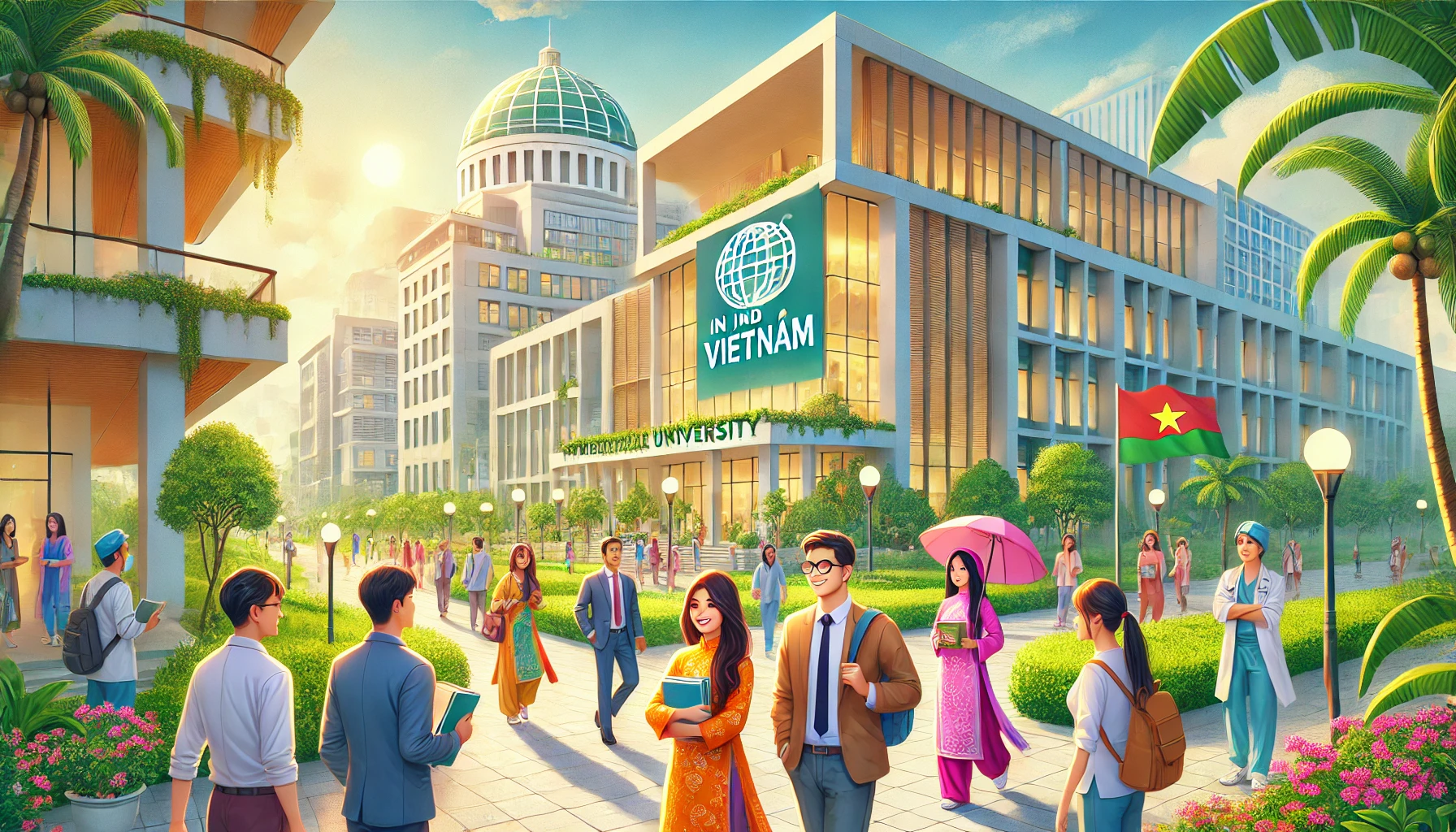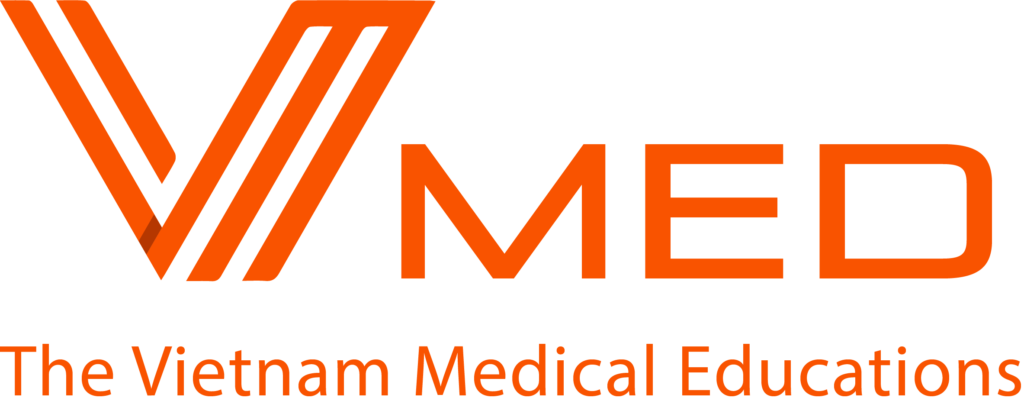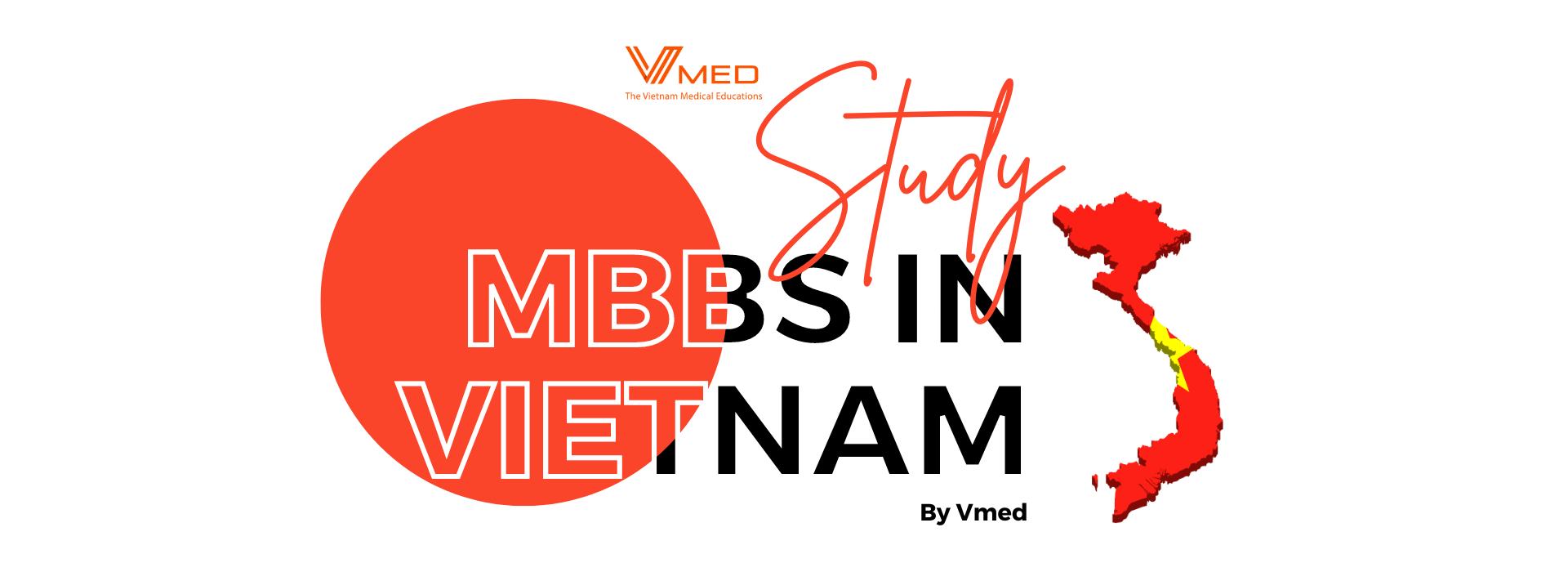Introduction
Vietnam has emerged as a leading destination for Indian students seeking to pursue MBBS abroad. Known for its affordable tuition fees, globally recognised degrees, and NEXT-aligned curriculum, Vietnam offers a pathway to a successful medical career.
Preparing for MBBS in Vietnam requires thorough planning, from meeting eligibility criteria to adapting to a new culture. With proper preparation, Indian students can ensure a seamless transition and focus on achieving their academic goals.
In this blog, we will provide a step-by-step guide for Indian students to prepare for their MBBS journey in Vietnam, covering everything from admissions to cultural adaptation.
Understanding Admission Requirements
Indian students must meet specific criteria to secure admission for MBBS in Vietnam. Here’s an overview of the essential requirements:
1. NEET Qualification
Qualifying for the National Eligibility cum Entrance Test (NEET) is mandatory for Indian students seeking to study MBBS abroad. This ensures compliance with National Medical Commission (NMC) guidelines for licensing in India after graduation.
2. Academic Eligibility
Students should have completed their 10+2 education with the following minimum qualifications:
- Physics, Chemistry, and Biology (PCB) as core subjects.
- A minimum aggregate of 50% in PCB for general category students and 40% for reserved categories.
3. Age Criteria
Applicants must be at least 17 years old by December 31 of the year they apply for admission. This age requirement is standard for most medical universities abroad.
4. English Proficiency
Most universities in Vietnam offer MBBS courses in English, and students are expected to have a basic proficiency in the language. However, there is no mandatory requirement for IELTS or TOEFL.
Meeting these requirements ensures students are eligible for admission and prepared to meet academic standards in Vietnam.
Selecting the Right University
Choosing the right university is one of the most critical steps in preparing for MBBS in Vietnam. Students should evaluate universities based on the following key factors:
1. Tuition Fees and Affordability
Vietnamese universities offer some of the lowest tuition fees for MBBS programs globally:
- Nam Can Tho University: Tuition fees start from ₹1.86 lakhs per semester.
- Can Tho University of Medicine and Pharmacy (CTUMP): Annual tuition fees range between ₹3–4 lakhs.
These cost-effective programs ensure quality education without financial strain.
2. Recognition and Accreditation
Ensure the university is recognised by global medical bodies like:
- National Medical Commission (NMC) (India).
- World Health Organization (WHO).
- FAIMER (Foundation for Advancement of International Medical Education and Research).
Recognition guarantees eligibility to practice medicine in India and other countries.
3. Clinical Training Opportunities
Universities like Nam Can Tho University provide early clinical exposure, with hands-on patient interactions starting in the first year. Access to multi-specialty hospitals and modern simulation labs enhances practical learning.
4. Facilities for Indian Students
Consider universities that cater specifically to Indian students, with:
- Separate hostels for boys and girls.
- Availability of Indian food, including North and South Indian cuisines.
- Cultural and academic support systems.
5. Location and Accessibility
Vietnam’s proximity to India (just a 4-5 hour flight) makes it a convenient destination for students and their families. Universities located in cities like Can Tho offer a safe and supportive environment for international students.
By carefully considering these factors, students can select a university that aligns with their academic goals and personal preferences.
Document Checklist for MBBS in Vietnam
Having the necessary documents in order is crucial for a seamless admission process. Below is a detailed checklist for Indian students applying to medical universities in Vietnam:
1. Academic Documents
- 10th and 12th Mark Sheets: Attested copies are required as proof of academic qualifications.
- School Leaving Certificate: To confirm completion of higher secondary education.
2. NEET Scorecard
- A valid NEET qualification certificate is mandatory as per NMC guidelines for Indian students pursuing MBBS abroad.
3. Passport
- A valid passport with at least six months of validity from the date of travel. If you do not have a passport, apply early to avoid delays.
4. Birth Certificate
- A birth certificate, translated into English if it is in another language, and notarised for authenticity.
5. Passport-Sized Photographs
- Recent passport-sized photographs (10-12 copies) with a white background. These are needed for applications, visas, and university IDs.
6. Medical Fitness Certificate
- A medical certificate issued by a registered doctor to confirm the student is physically and mentally fit for studies abroad.
7. Visa Application Documents
- Invitation Letter from the university.
- Proof of sufficient funds (bank statements) to cover tuition fees and living expenses.
- Flight ticket details for visa approval.
Ensuring these documents are ready and verified will help students avoid any delays in the admission and visa processes.
Financial Planning for MBBS Abroad
Careful financial planning is essential for Indian students preparing to study MBBS in Vietnam. With its affordable tuition fees and low living costs, Vietnam is a practical choice for families seeking cost-effective medical education. Here’s a breakdown of costs and planning tips:
1. Tuition Fees
- Annual Tuition Fees: ₹3–4 lakhs.
- Total Tuition Costs for 6 Years: Approximately ₹20–24 lakhs.
Tuition fees vary slightly between universities, but all are significantly lower than Indian private medical colleges.
2. Living Expenses
The cost of living in Vietnam is comparable to living in Indian cities, with average monthly expenses of ₹10,000–₹15,000.
- Hostel Accommodation: ₹6,000–₹8,000 per month.
- Food: ₹3,000–₹5,000 per month, with Indian meals widely available.
- Transportation: Approximately ₹1,500 per month for local travel.
3. One-Time Charges
Students should budget for initial expenses, including:
- Visa processing and travel: ₹75,000–₹80,000.
- Documentation and ministry authentication: ₹1.5–₹2 lakhs.
4. Scholarships and Education Loans
Some Vietnamese universities offer merit-based scholarships for outstanding students. Additionally, Indian students can apply for education loans to cover tuition and living costs.
- Banks in India offer competitive loan rates with repayment terms extending up to 10–15 years.
- Loans typically cover tuition, living expenses, and travel costs.
5. Emergency Funds
Students should set aside at least ₹50,000–₹1 lakh as emergency funds for unexpected expenses during their stay.
Planning a detailed budget and exploring financial aid options ensures students can focus on their studies without financial stress.
Visa Application Process
Obtaining a student visa is a critical step for Indian students preparing to study MBBS in Vietnam. The process is straightforward when guided by reliable consultancies like Vmed, ensuring hassle-free approval. Below is a step-by-step guide:
Step 1: Receive the University Invitation Letter
Once the student’s application is approved, the university issues an invitation letter, which is required for the visa application.
Step 2: Gather Required Documents
Ensure the following documents are ready:
- Passport with at least six months of validity.
- Recent passport-sized photographs.
- University invitation letter.
- Proof of financial stability (bank statements).
- Completed visa application form (provided by the embassy).
Step 3: Submit the Application
Submit the student visa application to the Vietnamese Embassy in Delhi or the nearest consulate. Vmed assists in filling out forms, scheduling appointments, and ensuring that all documents are correctly submitted.
Step 4: Pay the Visa Fee
The visa processing fee ranges between ₹4,000–₹6,000 and is non-refundable. Students are advised to keep a receipt of payment for reference.
Step 5: Visa Approval and Stamping
Once the visa is approved, which usually takes 5–7 working days, the passport is returned with the stamped student visa.
Step 6: Pre-Departure Checklist
With the visa in hand, students should confirm their travel dates, book flights, and prepare the necessary documents for immigration.
By following these steps and seeking expert guidance, students can complete the visa process efficiently and focus on their academic preparations.
Packing and Pre-Departure Tips
Preparing for your journey to Vietnam involves thoughtful packing and pre-departure arrangements to ensure a smooth transition. Here’s a checklist to help Indian students:
1. Essential Documents
Keep all critical documents in a secure and accessible folder, including:
- Passport with student visa.
- Admission and invitation letters.
- NEET scorecard and academic certificates.
- Medical fitness certificate.
- Recent passport-sized photographs (10–12 copies).
2. Clothing and Weather-Appropriate Items
Vietnam’s tropical climate means warm weather for most of the year, but light layers for cooler months are advisable.
- Pack breathable cotton clothes for daily wear.
- Include formal attire for academic purposes and ceremonies.
- Comfortable shoes for walking and campus activities.
3. Academic and Study Materials
- Basic stationery, including notebooks and pens.
- A laptop or tablet for online classes and research.
- Medical textbooks as recommended by the university (or plan to purchase them locally).
4. Personal Care and Medicines
- A basic first-aid kit with prescribed medications.
- Toiletries such as toothbrushes, toothpaste, soap, and shampoo.
- Essential skincare products, including sunscreen.
5. Food and Kitchen Supplies
While Indian meals are available in hostels and nearby eateries, you may want to pack:
- Ready-to-eat snacks like instant noodles and biscuits.
- Spices and condiments to cook familiar dishes occasionally.
6. Currency and Banking
- Carry around ₹20,000–₹30,000 in Vietnamese Dong for initial expenses.
- Set up an international debit card or consider opening a local bank account upon arrival.
7. Travel Arrangements
- Confirm your flight tickets and keep a copy of your itinerary.
- Arrange for airport pickup through your university or consultancy like Vmed.
By packing efficiently and organizing these essentials, students can begin their MBBS journey in Vietnam confidently and stress-free.
Cultural and Lifestyle Preparation
Adapting to a new culture and lifestyle is a crucial part of preparing for MBBS in Vietnam. Vietnam offers a welcoming environment that shares many similarities with Indian culture, making the transition easier for Indian students.
1. Understanding Vietnamese Culture
Vietnamese culture emphasizes respect, hospitality, and community. Students should familiarize themselves with basic customs, such as:
- Greeting locals with a slight bow and polite words like “Xin Chào” (Hello).
- Dining etiquette, such as waiting for elders to begin meals.
Engaging in cultural exchange programs organized by universities helps students feel more integrated.
2. Language Tips
While MBBS courses in Vietnam are conducted in English, learning basic Vietnamese phrases can make daily interactions smoother. Common phrases like “Cảm ơn” (Thank you) and “Xin lỗi” (Sorry) are helpful in building rapport with locals.
Universities may also offer language workshops to assist international students.
3. Food and Dietary Adaptation
Vietnamese cuisine is renowned for its freshness and balanced flavors. Indian students will also find several eateries offering North and South Indian dishes near universities.
- Students can enjoy Vietnamese staples like Pho (noodle soup) while occasionally preparing Indian meals in hostel kitchens.
4. Climate and Clothing
Vietnam’s tropical climate is similar to India’s, with warm and humid summers. Students should pack comfortable, lightweight clothing and include an umbrella for the occasional rainy days.
5. Socializing and Networking
Building connections with fellow Indian students and locals is essential for a fulfilling experience. Participating in extracurricular activities and university clubs fosters friendships and helps students adapt to their new environment.
By embracing Vietnamese culture and lifestyle, students can enhance their personal growth and make the most of their MBBS journey abroad.
Conclusion
Preparing for MBBS in Vietnam is an exciting journey that requires careful planning and thoughtful execution. Vietnam’s affordable tuition fees, globally recognised universities, and supportive cultural environment make it an ideal destination for Indian students pursuing medical education abroad.
From understanding admission requirements and selecting the right university to organizing documents and financial planning, every step is crucial for a smooth transition. Embracing Vietnamese culture, preparing for academic rigor, and building a strong support network further enhance the overall experience.
With expert guidance from consultancies like Vmed, Indian students can navigate the complexities of admissions, visa processing, and settling abroad effortlessly. A well-prepared student is not only academically successful but also enjoys a fulfilling and enriching international study experience.
Vietnam offers more than just a degree—it provides a foundation for a global medical career. Begin your journey today and take the first step toward becoming a skilled and compassionate doctor.



